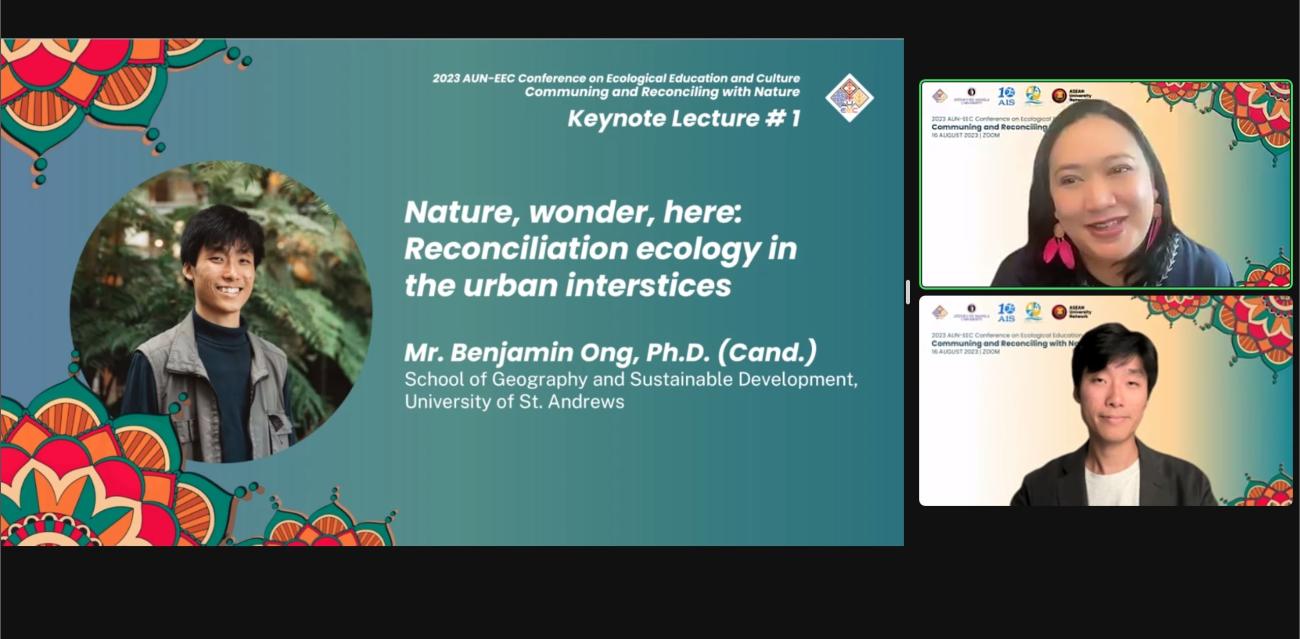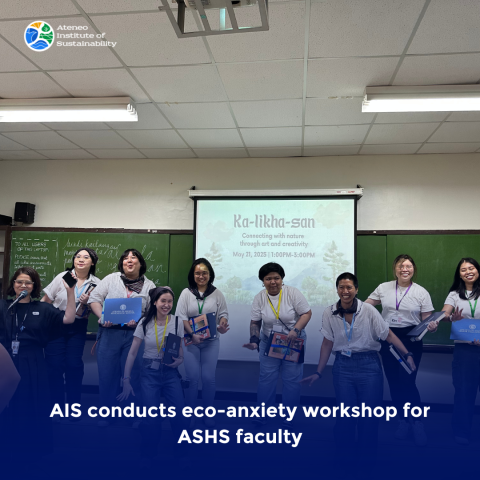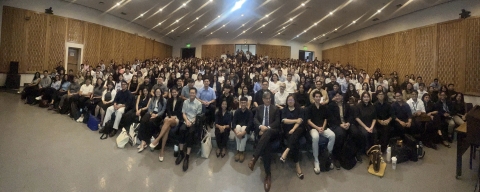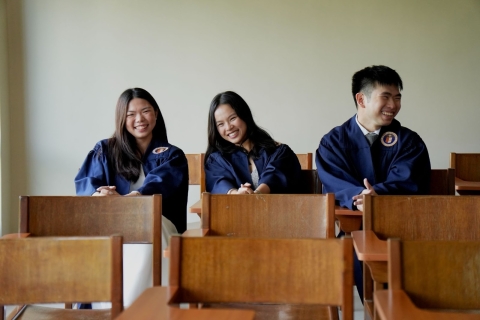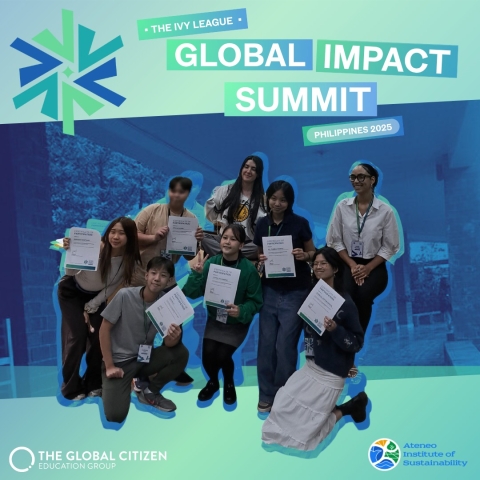AIS, AUN-EEC, Ateneo BiodivLab host the AUN-EEC 2023 Conference with focus on ecological restoration and reconciliation
29 Aug 2023 | John Carl Alonsagay & Jean Jardaleza Mijares
Reiterating and reflecting the post-pandemic lessons on ecological restoration and reconciliation, the ASEAN University Network on Ecological Education and Culture (AUN-EEC), the Ateneo Institute of Sustainability (AIS), and the Ateneo Biodiversity Research Laboratory hosted the 2023 AUN-EEC Conference on Ecological Education and Culture via Zoom last 16 August 2023. The conference is part of this year’s AUN-EEC banner theme “environmental restoration and reconciliation”.
With the theme “Communing and Reconciling with Nature”, the day-long virtual event was aimed to be a forum for AUN members and other stakeholders from the ASEAN region to share innovative ways of delivering ecological education, bridging cultural exchanges, and providing a space for student organizations to share their experiences and best practices in mainstreaming environmental advocacies.
Dr. Nikki B. Carsi Cruz, Department of Interdisciplinary Studies Chair, moderated the morning plenary. Fr. Roberto C. Yap, S.J., President of the Ateneo de Manila University, and Dr. Choltis Dhirathiti, Executive Director of the ASEAN University Network (AUN), welcomed the participants. The morning plenary included two keynote lectures and one-panel discussion.
Two of the keynote lectures started with Mr. Benjamin Ong, a PhD candidate from the School of Geography and Sustainable Development at the University of St. Andrews with a presentation titled “Nature, wonder, here: Reconciliation ecology in the urban interstices.” His presentation revolved around his personal growth, his experiences, and showed how the invitational culture in Southeast Asia inspired his own views about ecological education.
The second keynote lecture was delivered by Dr. David Ganz, Executive Director of the Center for People and Forests (RECOFTC) based in Thailand. In his talk titled, “Building climate resilience through forestry education: RECOFTC’s contribution to ecological education”, Dr. Ganz emphasized the importance of comprehensive forest education in Southeast Asia to address the challenges of sustainable development, biodiversity conservation, and climate change.
The keynote lectures were followed by a panel discussion titled “Lived experiences and lessons from the field on reconciliation ecology”. The three panelists shared their experiences and their challenges in restoring and preserving various ecosystems through multifaceted approaches.
The first panel presenter, Masungi Georeserve Foundation CEO Billie Dumaliang shared her organization’s initiatives and programs for restoring and conserving the Masungi Georeserve, a karst ecosystem in Rizal province, Philippines. Despite its valuable ecosystem services, Masungi still faces illegal activities. Ms. Dumaliang shared how they harness geotourism to raise awareness, generate revenue to support their initiatives, and engage local communities in conservation efforts.
The second-panel presenter, Dr. René Dommain, Senior Researcher at Nanyang Technological University, presented his insights into the restoration of the threatened Southeast Asian peatlands. He highlighted that peatlands are not only important habitats in the region but also a major sink for carbon dioxide and therefore its destruction contributes significantly to climate change and biodiversity loss. Dr. Domain argued that the loss of peatlands is a result of the growing separation of people from nature and the loss of traditional values and spiritual beliefs and that the solution to the problem is to challenge the current value system of materialism and revive the traditional values and belief systems.
The third-panel presenter, Dr. Rebecca T. Barrios, Philippine Initiative for Environmental Conservation (PhilinCon), presented the efforts of her organization in securing the Northwest Panay Peninsula Natural Park in Panay Island, Central Philippines. She added that the key to conservation is working closely with the communities, as organizations must involve those who are most affected by conservation efforts in the decision-making processes.
The afternoon parallel sessions focused on the conference’s four thematic areas namely:
- Ecology, pedagogy, and interdisciplinarity
- Indigenous wisdom and stories from communities
- Nature-based and technology-based innovations in communing with environment
- Stories and insights from student organizations mainstreaming environmental advocacies
The sessions had 32 presenters from varied universities and local communities. After the presentations, youth participants were invited to submit to “Baligtarin Mo!”, Ateneo de Manila’s ongoing initiative in implementing experiential learning to environmental education. The conference formally concluded through the closing remarks from the AUN-EEC Executive Director, Dr. Emmanuel Delocado. The virtual event reached a peak of 132 participants from mostly ASEAN countries. The network’s final activity for this year will be the AUN-EEC Workshop which is set to schedule in October 2023.








